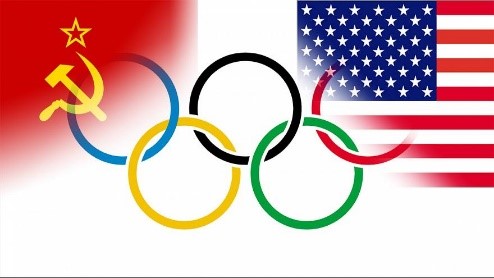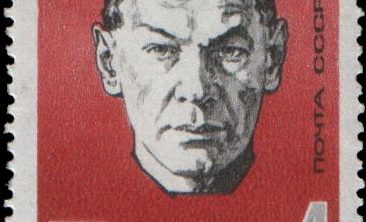APT is the acronym of Advanced Persistent Threat. That is the name that receives a group of attackers that usually is related to a Nation-State to carry out cyberattacks to a concrete organizations that are considered targets by the threat group and the State which is sponsoring it.
Cyber espionage has increased towards anti-doping sports organizations. Between 2016 and 2018, several cyber-attacks against important international anti-doping organizations were identified. As quoted by A. Villalón ([1]) in his post about the GRU activity in October 2018 “the British NCSC publicly accused the GRU of cyber-espionage activities against the World Anti-Doping Agency agency (WADA)“. Cyber-attacks are also attributed to the IOC (International Olympic Committee Antidoping) and CCES (Canadian Center Ethics for Sports) where allegedly among its main objectives was to capture the credentials of anti-doping officers and technicians to subsequently access classified information . Another anti-doping technician, in this case from the USADA (US Antidoping Agency), which was located in Rio de Janeiro during the Olympic Games, had his email account compromised from the hotel’s Wi-Fi by alleged GRU agents (it is recommended that A. Villalón’s posts on the GRU ([1]), Unit 74455 ([3]) and 26165 ([2])) be read). From the different events related to cyberespionage within international anti-doping organizations, we can see that international sport has more relevance for world superpowers like Russia than it does “a priori”.
Sport has always been a useful psychosocial tool ([4]) for super-power governments to encourage certain emotions, feelings and even values among their citizens. The national sporting successes of a country generate feelings of social union, reducing a possible ideological tension of the same. There is a psychosocial effect ([7]) where society tends to link its feelings of patriotic and national identity with the international sporting successes of its country.
Sport could be considered as one of the “softpower” parts of a government or state. This concept of “softpower” is understood as that strategic action carried out by a government through state cultural elements such as sports, art or institutional acts to carry out modifications of the values, behaviors and feelings of its citizens. We would understand as “hardpower” those diplomatic, military and economic actions undertaken by a State to control certain elements of national interest and security.
During the nineteenth century, the use of sport by the governments of states considered superpowers increased considerably. Great Britain and Russia were States that undertook a softpower strategy within the field of sport to generate a sense of sport supremacy with the intention that an extrapolation to other state sectors is carried out. Through sporting success, governments seek to convey a feeling of superiority over other States, aiming to generate the perception of supremacy that will probably lead to increased patriotism in society.
During the XXth century, this sports softpower strategy was used by the authoritarian governments of Russia and Germany among others. Both States sought to generate a sense of supremacy among their citizens and at the same time aimed to increase leisure and distraction within their societies, since they had high levels of social repression. Their main objectives were, first and foremost, to maintain patriotism based on feelings of racial, national and cultural supremacy. Secondly, they sought to generate a psychosocial means of positively channeling the oppression and social tension suffered by the authoritarian governments themselves.
The Olympic Games that took place during the Cold War period were highly useful for the rulers of the USSR and the US to influence the creation of the national identity of Soviet and American citizens.
The APT groups usually develop cyberattacks to disrupt the IT systems, steal data and sabotage the operations systems of the victim. The way about how an APT could develop their cyberattacks could depend on each campaign. There are phishing emails campaigns that are designed to be very determined with their targets, however, sometimes the campaigns are completely generalist and the APT tries to spread their cyberattacks indiscriminately, trying to collect information in a massive way.
Currently, for a State it is highly relevant to have international sporting successes with a presence in the media. ([7]) This element is key, because if the national selections of a State have professional successes without these being transmitted by international media, its citizens will not develop the perception of supremacy since a very significant part of the creation of the National identity is how other or foreign societies perceive us. Consequently, the internationalization of sporting successes will be key to the creation of the social feeling of patriotism. This characteristic helps us to understand why Russia has a high interest in its Olympic athletes and not so much in athletes without international projection or media presence. The Olympic Games is the event with the most global expectation and also its participants are directly representing their States and not private entities as it could occur in other sporting events with high international media notoriety.
The Kremlin was accused of an alleged manipulation of positive test/reports of Russian athletes. ([8]) Between 2011 and 2015, the Kremlin established a state corruption scheme to manipulate positive doping tests of Russian athletes. Presumably, the tests from foreign agencies were sent to a laboratory where Director Grigory Rodchenkov was, he would analyze them and when he found a positive he would consult with the anti-doping agency RUSADA to find out whose it was. He would then inform Yuri Nagornykh, Russian Vice Minister of Sports. He was responsible for deciding whether Rodchenkov should manipulate the positive information in the ADAMS system, a system shared with the AMA agency and other international federations. Of the 577 positives detected, 312 were manipulated and belonged to the athletes with the greatest potential for medals.
As can be seen in the graph, the vast majority of positive test manipulations belonged to the athletics modality, one of the most televised in the world within the Olympic Games. In second place, we find the powerlifting modality, a modality that by its idiosyncrasy conveys a message of strength and greatness.
At the 2015 Olympic Games in Sochi (Russia), ([8]) the FSB allegedly constructed a building next to the anti-doping building that was managed by AMA, which monitored the proper development of anti-doping controls. Through a hole in Director Rodchenkov’s office, samples of the athletes’ manipulated tests were passed from one building to another. The FSB obtained clean samples from all those athletes and exchanged them for the manipulated urine. Up to 15 of the cases were medalists.
The Russian Federation’s state doping system was designed with the intention of ensuring or increasing sporting success during the Olympic Games. One of its objectives was to increase the national pride of Russian citizens and generate a more consolidated national identity. With the alleged cyberespionage operations in the different anti-doping agencies ([6]), the GRU sought to acquire confidential information about anti-doping investigations directed at its athletes and to steal information about athletes from other States.
References:
- [1] Villalón, A. (2018, 26 December). (Cyber) GRU (V): October 2018 – Security Art Work. Retrieved from https://www.securityartwork.es/2018/12/26/ciber-gru-v-octubre-2018/
- [2] Villalón, A. (2018b, 28 December). (Cyber) GRU (VII): structure. Unit 26165 – Security Art Work. Retrieved from https://www.securityartwork.es/2018/12/28/ciber-gru-vii-estructura-unidad-26165/
- [3] Villalón, A. (2019, 4 January). (Cyber) GRU (VIII): structure. Unit 74455 – Security Art Work. Retrieved from https://www.securityartwork.es/2019/01/03/ciber-gru-viii-estructura-unidad-74455/
- [4] Ørnulf Seippel (2017) Sports and Nationalism in a Globalized World, International Journal of Sociology
- [5] McClaren, R. H. (2016). WADA INVESTIGATION OF SOCHI ALLEGATIONS (2nd REPORT). Retrieved from https://www.wada-ama.org/sites/default/files/resources/files/mclaren_report_part_ii_2.pdf
- [6] FBI. (2018, 4 October). GRU HACKING TO UNDERMINE ANTI-DOPING EFFORTS. Retrieved from https://www.fbi.gov/wanted/cyber/gru-hacking-to-undermine-anti-doping-efforts
- [7] Bairner, Alan. 2001. Sport, Nationalism, and Globalization: European and North American Perspectives. Albany: State University of New York
- [8] Arribas, C. (2016, 21 July). This is how Russia eliminated the positives of its best athletes. https://elpais.com/deportes/2016/07/18/actualidad/1468863237_248396.html






Leave a Reply